Russia
Case against Russian femactivist Yulia Tsvetkova drags on
Government has deemed her a ‘foreign media agent’
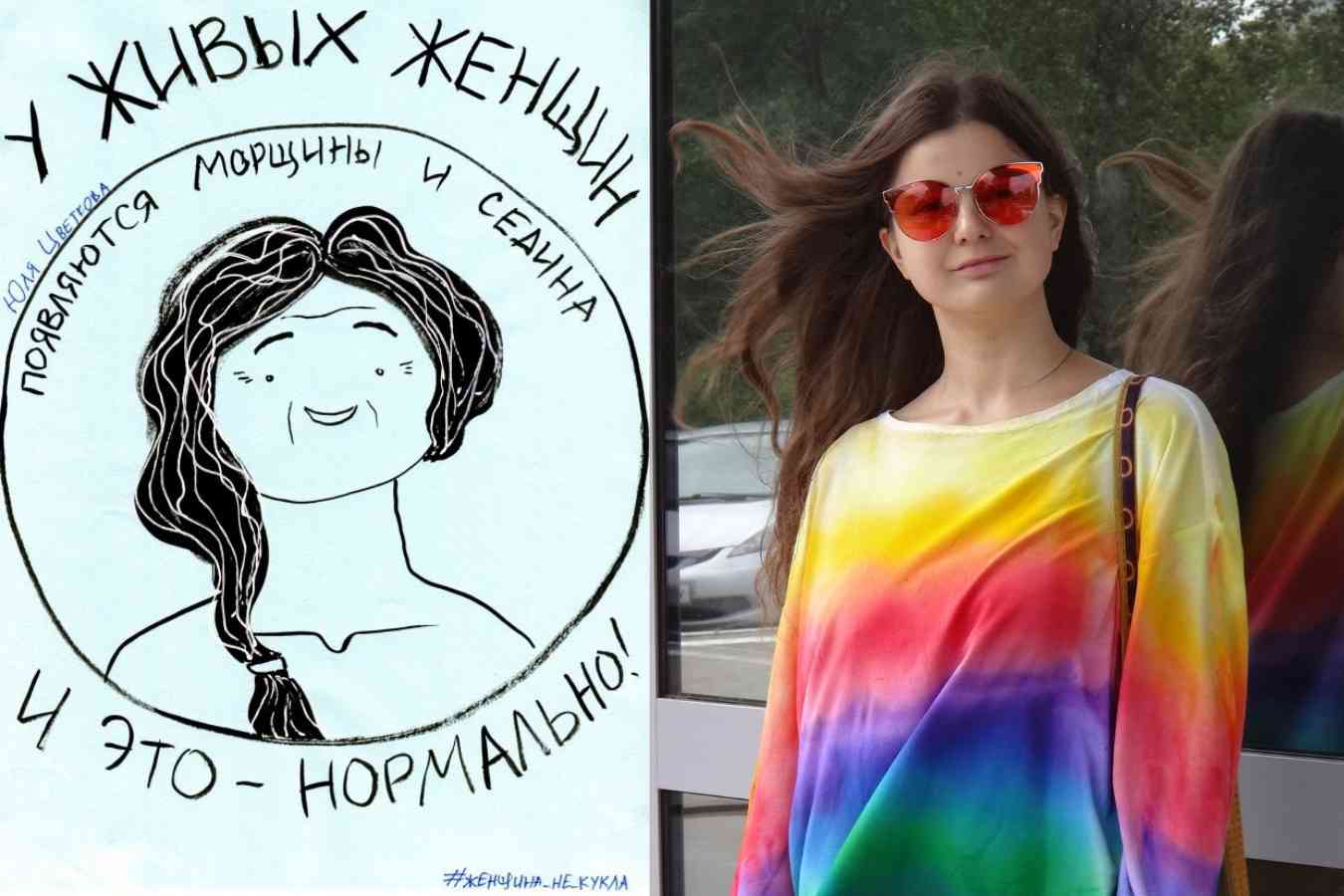
Facing a potential sentence of six years in a Russian penal facility and just recently categorized as a “foreign media agent” by the Russian government, 29-year-old feminist and artist Yulia Tsvetkova remains undaunted.
Authorities in this medium-sized city in the Russian Far East have been actively investigating and targeting Tsvetkova since 2017 after she posted nude drawings in a social media group of herself and others along with artwork supporting Russian LGBTQ people on VKontakte (VK.com) the giant Russian social networking platform.
She is charged with “production and dissemination of pornographic materials” (Article 242 (3b) of the Russian Criminal Code) for her body-positive drawings of vaginas on VK.com.
In addition Russian authorities have also been fined Tsvetkova 50,000 rubles ($936.77) for being the administrator of an LGBTQ Facebook page, and 75,000 rubles ($1,405.15) for a drawing depicting two same-sex couples with children. This month, the Russian Justice Ministry added her to the register of foreign media agents, in part for her work supporting LGBTQ people.
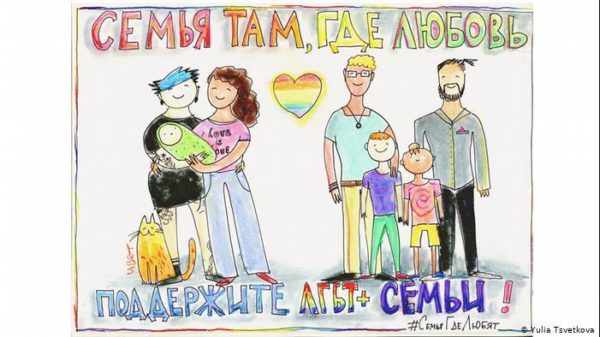
In an interview with journalist Nina Nazarova from the BBC Russian Service, so far, Tsvetkova said she has not received any official notification from the Justice Ministry regarding her inclusion in the register of foreign media agents.
“I don’t plan to take active steps myself to get registered, to make an insane and useless legal entity,” Tsvetkova told the BBC. “A lot depends on whether I end up in prison in the next month.
Her mother who she lives with, Anna Khodyreva, who is her unrelenting advocate, posted on her Facebook page about the designation.
“I am the mother of a foreign agent, and am very proud of this,” she wrote, using the Russian shorthand “inoagent,” which has entered the vernacular.
Tsvetkova was first investigated in 2017, but according to the BBC everything has changed since November 2019 when Tsvetkova became a defendant in five trials and, in fact, was locked up in Komsomolsk-on-Amur.
She was arbitrarily first detained on Nov. 20, 2019, and remained under house arrest until March 16, 2020. There were delays in the trial proceedings that were marked by a continuing investigation by the Federal Security Service at the behest of Boris Viktorovich Kononenko, the chief prosecutor of Komsomolsk-on-Amur.
A video released on YouTube on June 15, 2020, by author, activist and artist-writer Nicole Garneau details an overview of the case against Tsvetkova:
In August 2020, the Kulturfabrik Moabit in Berlin hosted an exhibition in solidarity with Tsvetkova. The exhibition was visited by about 300 people.
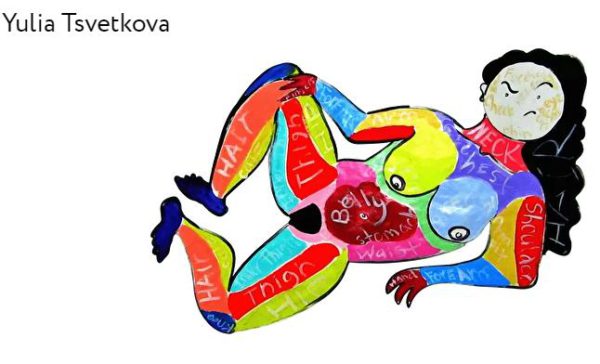
Independent political journalist Matt Baume, writing for Them magazine reported last April this isn’t the first time that Tsvetkova has faced scrutiny under Russia’s discriminatory laws, however. In 2019, she directed a play criticizing gender stereotypes entitled “Blue and Pink” at Color of Saffron festival, an art fair for children in Komsomolsk-on-Amur, and authorities reportedly forced the event to close in its entirety over concerns that organizers were “attempting to illegally hold an LGBT event,” according to “The Art Newspaper.”
Although the play was reportedly held for a small crowd in defiance of Russian authorities, Tsvetkova has been fined under the “propaganda” ban twice. She was forced $780 in 2019 for running an online support group for LGBTQ people and $658 last summer for a drawing that depicted loving same-sex families.
Speaking with the BBC Tsvetkova noted that the basis for the criminal charges stemmed from the public posts in the “Vkontakte” group “Vagina Monologues”, which was dedicated to feminist art and body positivity: It laid out artistic images of a naked female body.
The pictures of Tsvetkova herself, in particular, depicted women with wrinkles, stretch marks and body hair. Each of the drawings was signed with the phrase “Living women have …” and ended with the words ” — and that’s fine!”
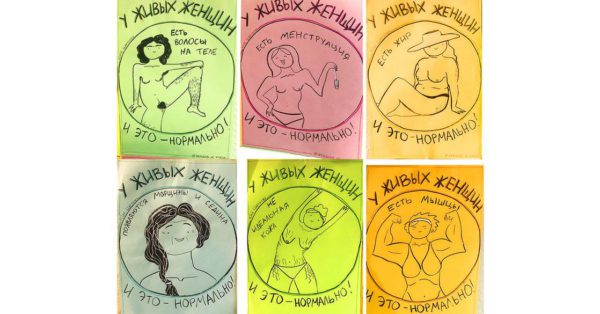
Russian independent media outlet Novaya Gazeta reported that Dmitry Oblasov, the FSB regional head spurred on at the request of the chief prosecutor of Komsomolsk-on-Amur. wrote a letter to Victoria Tregubenko, commissioner for Children’s Rights in the Khabarovsk Territory, asking the commissioner to study the content of Tsvetkova’s social networks for criminal violations.
The intent was to see that if in addition to the alleged penal code violations for production of pornography, provisions of the federal anti-LGBTQ “propaganda” law had also been violated because of her advocacy for Russian LGBTQ people.
The criminal case by the Central District Court of Komsomolsk-on-Amur began in earnest in the spring of 2021. While criminal case endlessly endured delays and drags on, a civil case against a Russian right-wing extremist media outlet brought by Tsvetkova and her mother over use of video of the initial FSB raid on her house in 2019 that was leaked by FSB officers was lost and the women found themselves being forced to pay 180,000 rubles ($3372.37) to that media outlet — allegedly for “defamation.”
The criminal proceedings against Tsvetkova, who faces up to six years in prison, are closed to the press and public.
The trial against Tsvetkova is coming to an end. On June 14 the prosecution requested a jail term of three and a half years for “production and dissemination of pornography” for her VK.com posts.
The final hearing is expected to take place on July 12 according to Amnesty International. Tsvetkova will make her final statement and the sentence will be handed down shortly after.
Russia
Russia’s anti-LGBTQ crackdown takes absurd turn
Authorities targeted one of the country’s largest bookstore chains last month
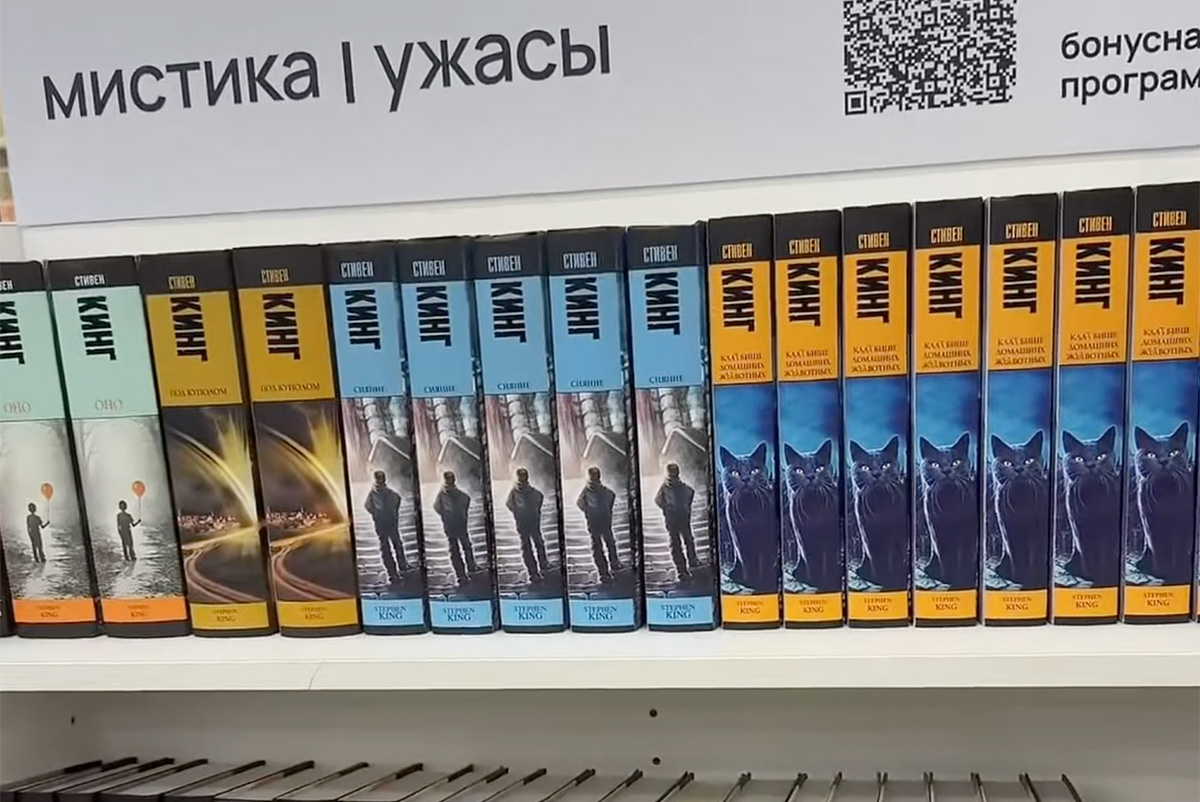
While MAGA continues to attack LGBTQ rights in the U.S. — including erasing queer history and removing children’s books with LGBTQ characters from libraries and pushing an ever‑broader censorship agenda — and as the UK faces MAGA‑inspired campaigns demanding the removal of LGBT literature from public libraries, Russia’s assault on LGBTQ‑related media has taken an extreme and frankly absurd turn. It is a cautionary tale for Western countries of just how far censorship can go once it becomes normalized. From books to anime, TV shows, and even academia, queer existence is being systematically erased.
In January, one of Russia’s largest private bookstore chains, Chitai‑Gorod-Bukvoed, faced the risk of being shut down over alleged “LGBT propaganda” under a law that prohibits any positive mention of LGBTQ content and equates LGBTQ material with pornography and pedophilia.
Among the books targeted were “Beartown,” “Us Against You,”and “The Winners”by Fredrik Backman, “The Left Hand of Darkness” by Ursula K. Le Guin, and “The Heart’s Invisible Furies” by John Boyne.
According to Chitai‑Gorod-Bukvoed CEO Alexander Brychkin, once it became known in mid‑December that law enforcement agencies had launched inspections, the Chitai‑Gorod–Bukvoed network immediately removed these titles from sale nationwide. In a comment to Kommersant, Brychkin stressed that the chain “operates strictly within the legal framework,” noting that the books were not listed in any official register of banned materials at the time the inspections began and had been on sale for several years.
Previously, two of the biggest online film distribution companies were charged as well under the “LGBT Propaganda law.”
Private businesses had no more right to speak up than writers or artists who are persecuted for their work. This is a nightmare scenario for many Americans who believe the free market itself can protect freedom of expression. This is the reality of modern‑day Russia.
A censored version of the anime “Steins;Gate” has also been released on Russia’s most prominent streaming platform, “Kinopoisk,” in which the storyline of one of the main characters was altered due to the ban on so‑called “LGBT propaganda,” as reported by opposition outlets Verstka and Dozhd, as well as fans on Reddit.
In the original series, the character Ruka Urushibara is a young person with an androgynous appearance who struggles to accept themself in a male body — an obvious indication that Ruka is a transgender girl. Ruka wears women’s clothing and dreams of becoming a girl. In episode eight, Ruka is given the chance to intervene in the past by sending a message to their mother in order to be born female.
In the Kinopoisk version, released in late 2025, Ruka is instead portrayed as a girl living with HIV — something entirely absent from the original anime and invented in translation. The storyline and dialogue were rewritten accordingly, completely distorting the original meaning: in this version, Ruka attempts to change the past in order to be born “healthy,” without HIV, rather than to be born a girl. This is not only absurd, but deeply offensive to the LGBTQ community, which has long been stigmatized in relation to HIV.
A similar distortion appears in “Amediateka”’s translation — or, better to say, rewriting — of the new AMC series “Interview with the Vampire.” Translators rewrote dialogue in ways that fundamentally misrepresented the plot, downplaying the openly queer nature of the characters to the point that romantic partners were translated merely as “friends” or “pals,” rendering entire scenes meaningless. At the same time, even brief critical references to Russian or Soviet politics were removed.
As for queer romance, such as the popular Canadian TV show “Heated Rivalry,”it has no official Russian translation at all and circulates only through fan translations. The show remains popular among millennials and Gen Z, and Russian social media platforms like X (Twitter) and Instagram are full of positive reviews. Yet, in theory, promoting such a show could put someone at risk under the law. People still watch it, still love it, still build fan communities, but it all exists quietly, pushed under the carpet.
The prohibition is not total, but it is a grotesque situation when even such a nice and harmless show is stigmatized.
Books suffer even more. Some classics fall under bans, and books are physically destroyed. In other cases, the outcome is worse: texts are rewritten and censored, as with “Steins;Gate.” This affects not only fiction but also nonfiction. For example, in “Deep Color” by Keith Recker, an American researcher of visual arts, all mentions of queer, feminism or BDSM culture were erased in the Russian edition. Even historically necessary references were removed, including mentions of the pink triangle used by the Nazis.
In the Russian edition of Skye Cleary’s “The Thirst for Authenticity: How Simone de Beauvoir’s Ideas Help You Become Yourself,” dozens of paragraphs were blacked out. Passages discussing the fluidity of gender and a person’s right to define themselves outside the rigid male–female binary were removed. Sections on contraception and abortion, critiques of biological reductionism and social pressure on women, details of Simone de Beauvoir’s intimate life and her relationships with women, as well as reflections on non‑monogamous relationships, were all excised. Even footnotes referencing quotes about gender identity were hidden.
Those two books are one of the many examples of the fate of Russian-translated nonfiction. Actually, even books about animal reproduction were demanded to be censored because of the “LGBT propaganda law”. Apparently, the authorities couldn’t accept a neutral scientific description of same-sex behavior and reproductive diversity in animals.
The authorities know what they are doing. Most people are less likely to read dense nonfiction or search actual studies about animal sexual behavior than to watch a popular TV show about queer hockey players, which makes visual media easier to censor quietly and effectively. So they really could show LGBTQ as something negative and absolutely unnatural for most of the Russian population.
And this is the core of the problem. This is not just censorship of content — it is the rewriting of history, even the narrative around biology. It is the deliberate marginalization of queer existence, the systematic erasure of queer people’s ability to see themselves reflected in culture, literature, and art.
The U.S. still retains independence in academia, publishing, and private business when it comes to queer voices. Russia does not. History shows where this path leads: Nazi Germany burned books; the Taliban destroyed cultural and historical materials. This is always one of the first steps toward genocide — not immediate, perhaps, but inevitable once dehumanization becomes official policy. It never stops with just one group. In Russia, immigrants, people from the North Caucasus and Central Asia, Ukrainians, and even disabled citizens face daily dehumanization — it’s all part of the same system.
And now, alarmingly, the U.S. seems to be following in Russia’s footsteps — the same path that enabled war in Ukraine and the thriving of authoritarianism.
Russia
Russia designates ILGA World an ‘undesirable’ group
Justice Ministry announced designation on Jan. 21
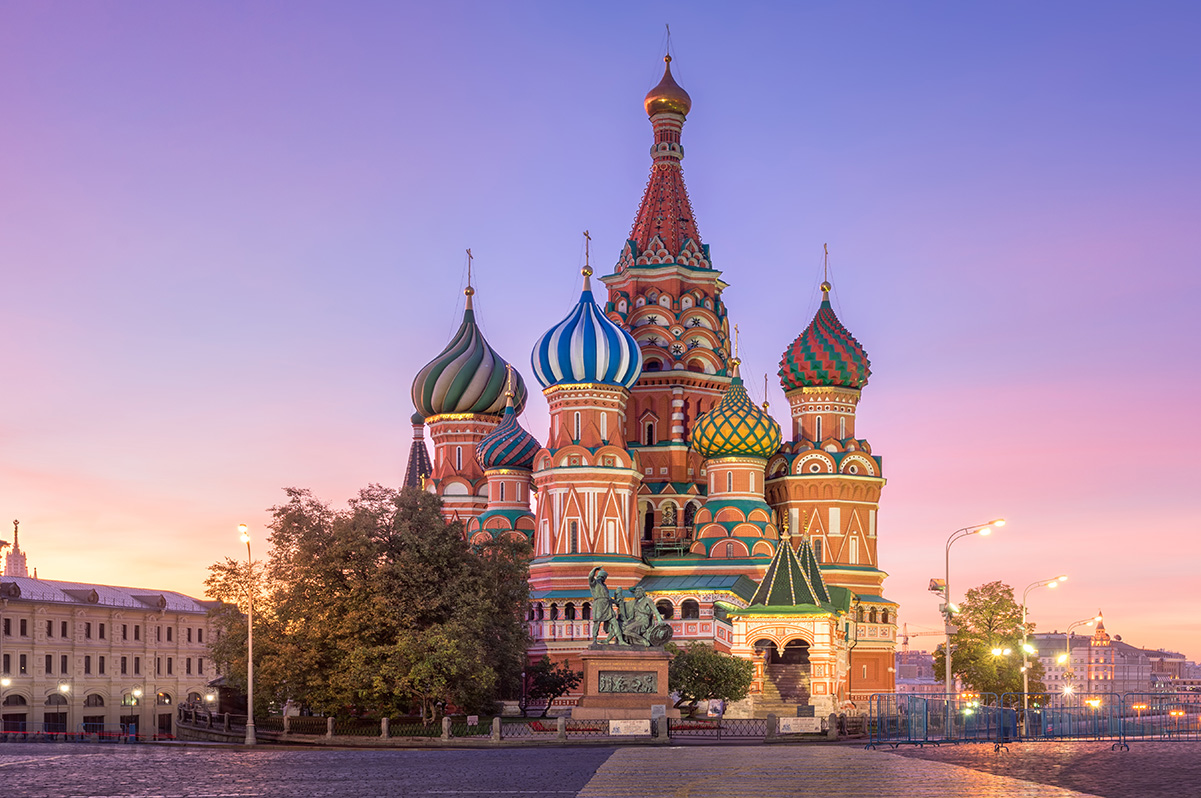
Russia has designated a global LGBTQ and intersex rights group as an “undesirable” organization.
ILGA World in a press release notes the country’s Justice Ministry announced the designation on its website on Jan. 21.
The ministry’s website on Tuesday appeared to be down when the Washington Blade tried to access it. ILGA World in its press release said the designation — “which also reportedly includes eight other organizations from the United States and across Europe” — “has been confirmed by independent sources.”
“ILGA World received no direct communication of the designation, whose official reasons are not known,” said ILGA World.
The Kremlin over the last decade has faced global criticism over its crackdown on LGBTQ rights.
ILGA World notes Russians found guilty of engaging with “undesirable” groups could face up to six years in prison. The Russian Supreme Court in 2023 ruled the “international LGBT movement” is an extremist organization and banned it.
“Designating human rights groups ‘undesirable’ is outlandish and cynical, yet here we are,” said ILGA World Executive Director Julia Ehrt. “But no matter how much governments will try to legislate LGBTI people out of existence, movements will stay strong and committed, and solidarity remains alive across borders. And together, we will continue building a more just world for everyone.”
Russia
Gay Russian asylum seekers remain in ICE custody
Andrei Ushakov and Aleksandr Skitsan sought refuge in US in November 2024.
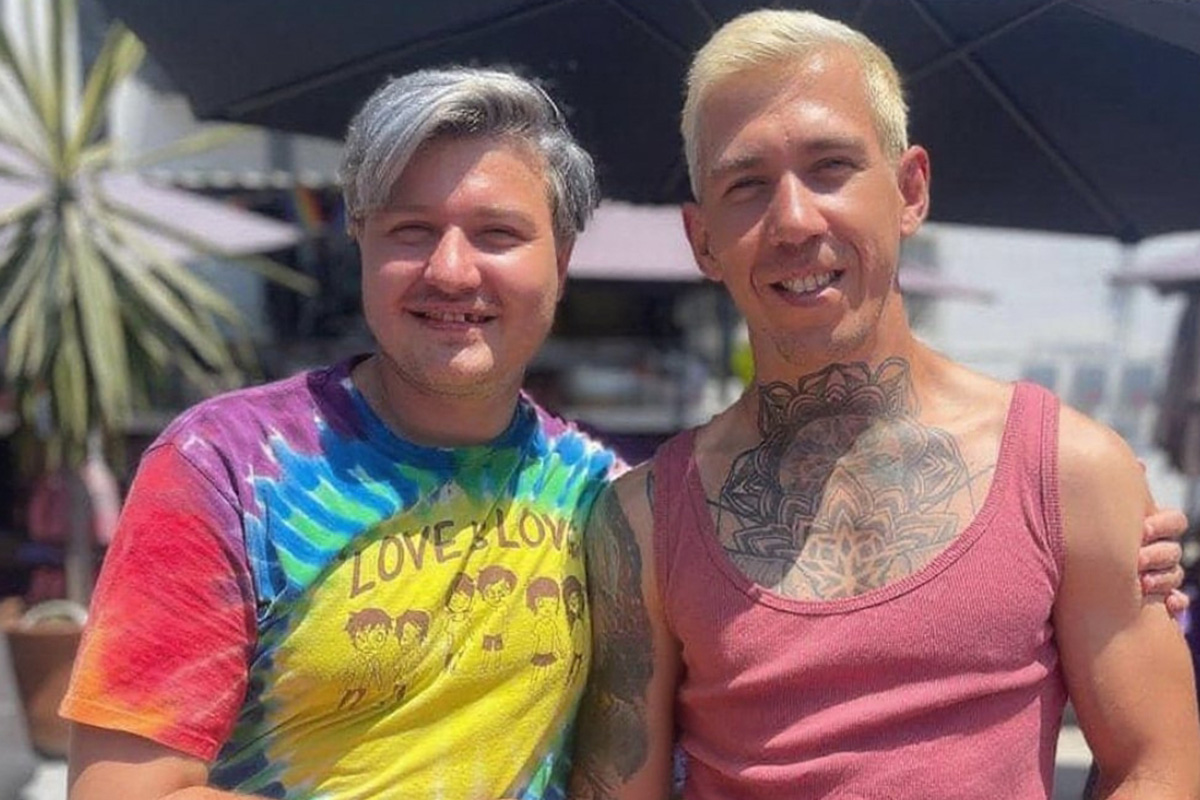
A gay married couple from Russia who has asked for asylum in the U.S. has been in U.S. Immigration and Customs Enforcement custody for nearly a year.
América Diversa, a group that advocates on behalf of LGBTQ immigrants, told the Washington Blade that Andrei Ushakov and Aleksandr Skitsan fled Russia on March 14, 2024, “after the government began labelling LGBTQIA+ organizations as ‘extremist.’” Skitsan “faced direct threats at his workplace, forcing them to flee for their safety.”
The State Department’s 2023 human rights report specifically notes a Russian authorities “used laws prohibiting the promotion of ‘non-traditional sexual relations’ to justify the arbitrary arrest of LGBTQI+ persons.” The 2023 report also cites reports that “state actors committed violence against LGBTQI+ individuals based on their sexual orientation or gender identity, particularly in Chechnya” and “government agents attacked, harassed, and threatened LGBTQI+ activists.”
Advocacy groups in August sharply criticized the State Department after it “erased” LGBTQ and intersex people from its 2024 human rights report. Immigration Equality and other organizations say this omission could jeopardize the cases of LGBTQ who are seeking asylum in the U.S.
Couple separated, not receiving proper medical care in ICE custody
América Diversa says Ushakov and Skitsan arrived in Mexico on March 15, 2024.
The men used the CBP (U.S. Customs and Border Protection) One app the Biden-Harris administration created that allowed them and other asylum seekers to schedule an appointment at a port of entry. Their appointment was on Nov. 27, 2024, and America Diversa said they asked for asylum on that day once they entered the U.S.
The Trump-Vance administration discontinued the CBP One app on Jan. 20, the day it took office.
“Upon entering U.S. custody, they (Ushakov and Skitsan) were separated without explanation,” said América Diversa.
Ushakov and Skitsan were initially detained at the Imperial Regional Detention Facility in Calexico, Calif., which is in the state’s Imperial Valley.
“Andrei was placed in an overcrowded unit with more than 60 detainees, where poor sanitation, excessive air conditioning, and the lack of adequate medical care have put his health at risk,” said América Diversa.
The group says the couple are now at the San Luis Regional Detention Center in San Luis, Ariz.
“They are now being denied all communication with each other, despite being legally married and sharing the same asylum case,” said América Diversa.
The group notes Ushakov has a “chronic medical condition that requires continuous medication and quarterly monitoring.”
“Despite repeated requests, he faces long delays in treatment and limited access to medical services,” said América Diversa.
América Diversa also noted Skitsan suffers from a “chronic ear infection, which causes ringing and temporary hearing loss, as well as untreated stomach issues.” América Diversa said Skitsan had been scheduled to see a doctor in December, but his “recent transfer to Arizona has jeopardized that case.”
“Their transfer to the San Luis Regional Detention Center has further worsened their situation,” said América Diversa. “At this new facility, they have been prohibited from communicating with each other, an act that violates not only basic humanitarian principles but also their rights as a legally married couple under both U.S. and international law.”
América Diversa Managing Director Yonatan Matheus on Oct. 22 told the Blade he had just spoken with Ushakov.
“He couldn’t talk with his husband, he was only able to talk with me for less than five minutes,” said Matheus. “The calls are recorded and monitored. He is very afraid to speak.”
The couple’s case are among those that have garnered attention since the Trump-Vance administration took office.
The White House earlier this year “forcibly disappeared” Andry Hernández Romero, a gay Venezuelan makeup artist who asked for asylum in the U.S., to El Salvador. He returned to his homeland in July after he spent more than 100 days in El Salvador’s Terrorism Confinement Center, a maximum-security prison known by the Spanish acronym CECOT.
ICE agents in August arrested Alice Correia Barbosa, a transgender Brazilian woman, while she was driving her car in Silver Spring, Md. A senior Department of Homeland Security official who misgendered Correia told the Blade that she “overstayed his visa by almost six years” and DHS plans to deport her.
Brazil has the highest number of reported murders of trans people in the world.
ICE did not respond to the Blade’s request for comment about Ushakov and Skitsan’s case.
-

 Baltimore5 days ago
Baltimore5 days ago‘Heated Rivalry’ fandom exposes LGBTQ divide in Baltimore
-

 District of Columbia5 days ago
District of Columbia5 days agoDeon Jones speaks about D.C. Department of Corrections bias lawsuit settlement
-

 Real Estate5 days ago
Real Estate5 days agoHome is where the heart is
-

 European Union5 days ago
European Union5 days agoEuropean Parliament resolution backs ‘full recognition of trans women as women’




















